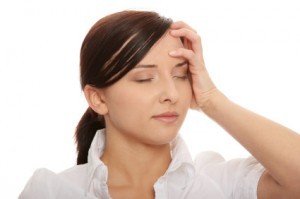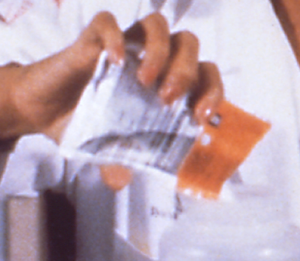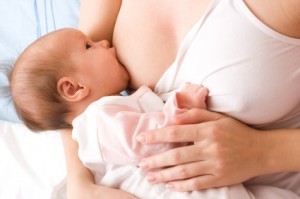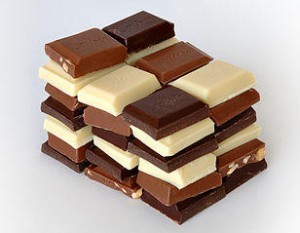Ways To Treat Mild To Moderate Dehydration At Home
Dehydration is a common complication of overexposure to heat, strenuous physical activity with profuse perspiration, vomiting and diarrhea. Many of us experience dehydration several times in life, often not realizing that we are dehydrated. In mild cases it can pass relatively easily with oral rehydration solutions but severe cases may usually require IV administration of fluids and even hospitalization. Dehydration is the killer complication of acute infectious diseases that causes vomiting and diarrhea. It contributes to large numbers of fatalities across the globe yet it is easy to treat at home in the early stages.
Effects of Dehydration
Consider the fact that 60% of the human body is composed of water. It is the primary medium through which substances are transported across the body and is necessary for every biochemical process that sustains life. Dehydration occurs when the body loses significant quantities of water. Another essential component in dehydration is the loss of electrolytes (salts) which are chemicals that play an important role in just about every function within the body. These electrolytes are dissolved in water and a shift in the concentration of electrolytes can affect water, and vice versa.
Dehydration has an adverse effect on every system in the body. It affects the heart contractility, heart rate and blood pressure. The loss of electrolytes disrupts nerve function, can lead to dizziness, seizures and even unconsciousness. Urine output decreases and wastes accumulate in the system. The muscles start to cramp and become weak. There is confusion, poor coordination and extreme fatigue. These are just some of the consequences of dehydration. In very mild cases, dehydration may cause fatigue and headaches but other symptoms are barely noticeable.
Mild to moderate dehydration can be treated at home. Severe dehydration on the other hands needs medical treatment often in a hospital setting. However, the focus should be on preventing dehydration in situations where it is likely to arise. This includes:
- Very hot weather.
- Strenuous physical activity.
- Sporting activities and intense exercise.
- Excessive consumption of alcohol.
- Use of diuretics to treat medical conditions.
- Vomiting and/or diarrhea.
- Profuse perspiration for any reason.
Use ORS and Not Water Alone
Water alone may not be as helpful as you think in treating dehydration. Water may not be absorbed into the body as effectively, excessive intake can further dilute remaining electrolytes in the body and it may remain in the gut where it draws out electrolytes. Plain water is better than not having any fluid but an oral rehydration solution (ORS) is better. It replenishes both water and electrolytes simultaneously. Properly formulated ORS will not draw out more water from the body and is easily absorbed into the system. Therefore it is advisable to use a commercial ORS where possible or follow the directions for making homemade solutions carefully.
Do Not Stop Breastfeeding
Breastfeeding should never be interrupted if a baby has signs of dehydration. It should be continued even if symptoms like diarrhea and vomiting are present. Some mothers believe that water is a better option and stop breastfeeding in favor of water. However, this is a mistake. Breast milk not only has the water content that baby will need for rehydration but it also contains nutrients and electrolytes which are important for recovery. Even oral rehydrating solutions for infants cannot replace breast milk. For infants who are breastfeeding and eating some solids, both nutrition options should be continued alongside rehydration efforts.
Keep Cool Indoors and Outdoors
Minimizing dehydration is as important as treating it. The loss of bodily fluid through perspiration is significant. Even if your dehydration was not initially caused by excessive sweating, you should still try to minimize this route of any further loss. The key to doing this is to stay cool when you are indoors and outdoors. Remember that perspiration is part of the thermoregulatory mechanism and if you manage to stay cool then your body will reduce perspiration. Wear light clothing when outdoors and try to stay in the shade. Use air conditioning when it is available indoors. Alternatively use an electric fan or open a window if it is safe to do so. Use light bed clothing and sleep with thin sheets when it is hot.
Avoid Diuretic Foods and Drinks
Another measure to minimize further fluid loss is to reduce any unnecessary loss of fluid in urine. While urination is an important physiological process, excessive water loss in urine can be exacerbate dehydration. Try to stay away from foods and drinks that have a diuretic effect. This means that it increases water loss beyond what would be normal for a person. Coffee is one of the most commonly consumed diuretics and so is alcohol. Your should avoid these beverages. But even tea and cola drinks can be a problem. Chocolate also contains caffeine and should not be consumed in large quantities if you are trying to overcome dehydration.
Rest Until Dehydration Resolves
Rest is an important part of overcoming dehydration. Bed rest is preferable but even if you do not want to lie in bed, try to keep your physical activity to a minimum. Your body is already under immense stress from dehydration and the underlying disease. Further strain through physical activity should therefore be avoided. Remember that physical activity increases the demand on the heart and other organs, as well as stimulates perspiration. All of these effects should be avoided as far as possible in order to minimize the impact of dehydration. Rest helps in this regard. When you are resting, you allow your body time to recuperate without straining the system further than the current state.
Stop The Vomiting and Diarrhea
Most cases of vomiting and diarrhea are acute and will resolve on its own in time, even without treatment. It is important to maintain rehydration, nutrition and get plenty of rest during this time. However, if vomiting or diarrhea is getting progressively worse and persisting for more than 3 days then you need to see a doctor immediately. Vomiting and diarrhea are common gastrointestinal symptoms but in the process you lose copious amounts of fluid and electrolytes.
Without curbing the vomiting and diarrhea if it is severe and persistent, you will be unable to restore the water and electrolyte balance with oral rehydrating solutions. But do not be hasty to use antidiarrheal drugs (for diarrhea) or antiemetics (for vomiting) in the first few days of the illness. Vomiting and diarrhea are ways that your body tries to expel toxins and microbes that are the cause of many gastrointestinal illnesses. Always speak to a doctor before self-medicating to stop these symptoms. Read more on rehydration for diarrhea and vomiting.
Eating Is As Important As Drinking
When we talk about treating dehydration most people immediately think that fluids alone is all that is necessary. But food also contains water and electrolytes along with the nutrients necessary for recovery and maintaining life. The intake of food should not be stopped in favor of fluids alone. While eating solids may not be practical while vomiting persists, a balanced diet should be continued throughout dehydration treatment and recovery from other causes. Food alone will not have enough fluid to treat dehydration. Try eating several small meals with sufficient fluid intake during and between meals. The BRAT diet may be helpful if you are starting up again on solid foods after profuse vomiting.










